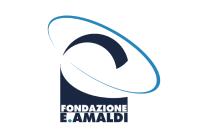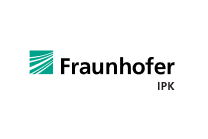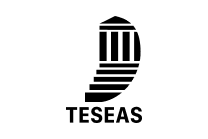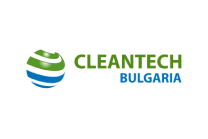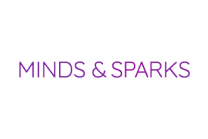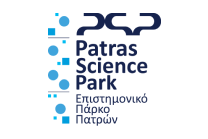The SPREAD2INNO consortium consists of actors from business acceleration, innovation hubs, research institutions and competence centres, science parks, business network and consultancy. It is composed by a group of 7 partners from 6 European countries (Austria, Belgium Bulgaria, Germany, Greece, Italy).
Fondazione E. Amaldi (FEA) – Coordinator
E. Amaldi Foundation (FEA) is the new Italian model for applied research, technology transfer and the promotion and support of the national scientific heritage. The foundation, born in 2017 from the will of the Italian Space Agency and the Hypatia Research Consortium, aims to offer a new way for interpreting applied science. FEA supports companies in becoming replicable examples of excellence in the new space economy by representing a scalable example of an innovation accelerator best practice and a creative force of networks between enlightened private companies and the public sector. We believe in open innovation and that is why we act as accelerators for all the players that operate in the field of technology transfer or who are interested in shortening the time in terms of innovation acquisition. FEA’s team of researchers is organised into six interdependent departments that guide and promote the synergy between research and partnership development with businesses: business applications, finance for innovation, advanced manufacturing, life sciences, electronics and new material and earth observation and telecommunications.
Fraunhofer IPK (IPK)
The Fraunhofer-Gesellschaft undertakes applied research of direct utility to private and public enterprise and of wide benefit to society. It´s services are solicited by customers and contractual partners in industry, the service sector and public administration. The Fraunhofer-Gesellschaft maintains over 80 research institutes at more than 40 different locations throughout Germany. The Fraunhofer Institute for Production Systems and Design Technology (IPK) carries out applied research and development in the fields of future-oriented technologies for the production process in factories. A particular focus of the entire institute is on the topic of Industry 4.0. The division Corporate Management at Fraunhofer IPK develops solutions for the design and management of organisations. In doing so, it combines the capabilities of engineers, psychologists, communication scientists, economists and computer scientists. Beside others, this implies to knowledge and competence management, the development and implementation of business plans for technology parks and research institutes as well as the strategic planning of national and regional innovation systems. IPK’s approach to planning, optimisation and implementation tasks is characterised by a holistic view on organisations including staff and processes, products and customers, suppliers and competitors.
European Business Angels Network (EBAN)
European Business Angels Network is the Pan-European representative for the early-stage investor community gathering over 100 member organisations in more than 50 countries today. Established in 1999, by a group of pioneer angel networks in Europe in collaboration with the European Commission and EURADA, EBAN represents a sector estimated to invest 11.4 billion Euros per year and playing a vital role in Europe’s future, notably in the funding of SMEs. EBAN fuels Europe’s growth through the creation of wealth and jobs.
Teseas (Teseas)
Teseas is a research and consulting firm based in Italy that provides services for industries, commercial companies, private individuals and public administration. Services include: industrial and financial strategy and resource planning, as well as advisory related to M&As. Teseas is at the forefront of the technological and industrial outlook standing on the path of sustainable development and focusing on deeptech applications. Teseas supports the ideation, development, implementation and management of innovative, complex and competitive projects working with: medium-sized organisations with heavy operational leverage in high-growth sectors, organisations having an experienced management team and a strong equity alignment, early-stage ventures with perspective of potential growth, and best-in-class teams with a defined growth strategy. As investor Teseas, focuses on pre-seed businesses looking for great ideas and teams with a proven product and business model and a clear path to scalable revenues and profitability. Teseas is active in the mentoring of wannabe entrepreneurs and in the development of educational programmes dedicated to university students with a strong interest in entrepreneurship and innovation management.
Cleantech Bulgaria (CTBG)
Cleantech Bulgaria is a business network for clean technologies, innovation and sustainable development. The organisation is working actively to introduce resource-efficient solutions leading to a shift to new business models, such as the low carbon and circular economy. Cleantech Bulgaria is a catalyst for innovative solutions and a trusted partner of the business, public administration, science and education. We are focused on enabling collaboration, professional matchmaking, innovation and support commercial and strategic partnerships among different clusters, associations and companies. The partners have a focus on greening business, environment, education and innovation, and Cleantech Bulgaria is connecting these elements into a single pivoting goal – enabling sustainable change towards an eco-conscious business and life. Cleantech Bulgaria provides consulting and financing for innovative enterprises, start-ups support and access to an international network of experts, partners, clients and investors. Cleantech Bulgaria is an official partner of the Knowledge and Innovation Communities (KICs) part of European Institute of Innovation and Technology (EIT), an independent body of the EU, collaborating on the topics of Sustainable Energy (EIT InnoEnergy) and Climate Change (EIT Climate KIC).
MINDS & SPARKS GMBH (M&S)
MINDS & SPARKS (M&S) is an independent, non-profit research organisation based in Vienna, Austria fostering science, innovation and technology to address major challenges and develop new methods and solutions for a better society. M&S creates strong connections between science and society using interdisciplinary approaches, promoting best practices and raising awareness on research and innovation achievements. Furthermore, the organisation focuses on improving the sustainability of research and innovation outcomes especially of public funded projects to ensure that spent resources lead to permanent positive impacts for the society as a whole. M&S is formed by a team of highly skilled personnel which holds many years of experience in designing, leading and implementing research and advisory projects and it hosts development consultants and technical engineers which have broad knowledge along the software development cycle. The organisation is involved in various research and innovation stakeholder networks including research organisations, academic institutions, civil societies, NGOs, governments, and industry in various sectors such as safety and security, health and care, energy and environment, or information and communication technologies.
Patras Science Park (PSP)
Patras Science Park was established in the outskirts of Patras, Greece, according to the model of “Incubator” for New Technology Based Firms (NTBFs), and it is located in the middle of an RTD ecosystem, consisting of three Research Institutes, one University, a microelectronics cluster and numerous high-tech start-ups as well as SMEs. The main scope is to provide high quality infrastructure as well as co-shape the appropriate financial and social conditions that will support and promote the creation, operation and development of innovative firms through spin-off / spin-out processes and the co‑operation among the University, Research Centres and the Industry. For over 30 years, PSP supports the growth of innovative, technology-based companies across several sectors such as ICT, biotechnology, clean energy and other industrial technologies, contributing to the City Region’s knowledge economy. Today, PSP is home of 41 companies and institutions, employing nearly 140 highly skilful personnel in areas such as engineering, chemistry, physics, medicine. PSP business model can be described under three headings: 1) Core Business: Develop and Manage fit-for-purpose office and lab space accommodation and provide cost effective administrative services, 2) Added Value Services, 3) Identity & Image.
